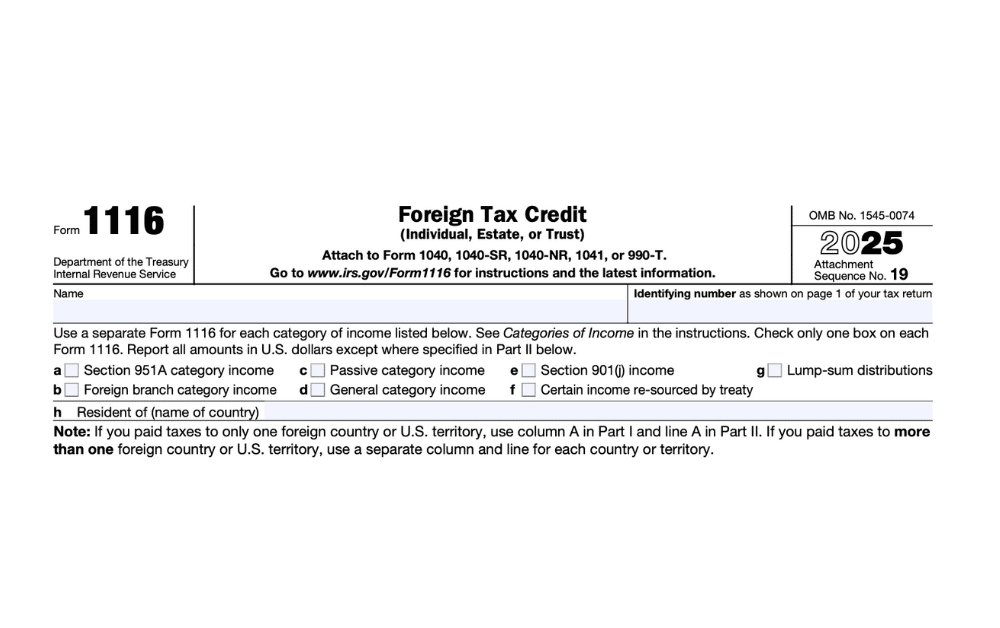8-Step Tax Checklist to Complete Before Moving to the UK

If you’re planning to move—or move back—to the UK, a little tax planning before you arrive can go a long, long way. This is especially true because the UK’s tax rules are undergoing a major change starting in April 2025.
Understanding the Big Shift: Remittance vs. Arising Basis
Historically, many individuals moving to the UK with foreign income (often called “non-doms”) could benefit from the “remittance basis” of taxation. This meant they only paid UK tax on their foreign income and gains if they brought (remitted) that money or asset into the UK. As long as it stayed outside the UK, it wasn’t taxed here.
However, from April 2025, the UK will be largely moving to a “residency-based system” for most people. This means that if you are considered a UK tax resident, your worldwide income and gains may be taxed “as they arise.”
It means that as soon as you earn income or make a profit (a “gain”) anywhere in the world, it becomes immediately subject to UK tax, regardless of whether you bring that money into the UK or keep it abroad. Think of it like this: the tax is due the moment the money is earned or the profit is made, even if it’s still sitting in an overseas bank account or investment.
This shift could significantly impact your tax bill, so how you structure your income, assets, and investments before you become a UK resident is more important than ever. .
This checklist highlights key tax issues to consider before your UK move, especially if you have income or assets outside the UK.
1. Are You Eligible for the 4-Year FIG Regime?
Starting April 2025, the UK will offer a new 4-year Foreign Income & Gains (FIG) exemption for new residents. Think of it as a four-year tax holiday on most of your non-UK earnings and profits. If you haven’t been UK tax resident for the past 10 years, you may qualify—but the clock starts ticking as soon as you arrive.
Action: Confirm your eligibility before you move. The sooner you set foot in the UK, the sooner those four years of potential tax relief begin.
2. Do You Have Income or Gains You Can Realize Before Becoming a UK Tax Resident?
Once you’re UK tax resident, your worldwide income and gains may be taxed as they come up (as they are earned) – meaning, as soon as you earn them, regardless of where the money is. This is different from the old ‘remittance basis’ where you only paid tax if you brought the money into the UK. Consider accelerating:
- Bonuses or contract payments
- Investment income or dividends
- Capital gains from selling property, stocks, or crypto
Action: Review timing with your tax advisor. Moving just a few weeks later could mean a lower tax bill because you realize those gains while still outside the UK tax net.
3. Are You Holding Foreign Mutual Funds or US-Based Investments?
Some investments, like US mutual funds or ETFs, are tax-inefficient under UK rules. This means you could end up paying more tax on them than you expect, or face complicated paperwork. They may be treated as ‘offshore income gains’ (taxed like regular income, potentially at higher rates, instead of capital gains) or trigger complex reporting (e.g., PFIC rules – a specific US tax rule for certain foreign investment funds that can lead to complex calculations and higher taxes for US citizens).
Action: Review your portfolio. Consider selling or switching to investments that are designed to be more tax-friendly in the UK before your move.
4. Do You Have a Trust, Offshore Entity, or Holding Company?
The UK has strict rules on foreign trusts and corporate structures. These can become very complicated once you’re a UK resident. Becoming UK resident may trigger:
- UK tax on worldwide trust income (meaning the income earned by the trust, no matter where it’s located, could be taxed in the UK).
- Attribution of offshore income to you personally (HMRC might treat the trust’s income as your income, even if you don’t receive it directly).
- Inheritance tax exposure on non-UK assets (assets held in these structures could become subject to UK Inheritance Tax upon your death).
Action: Review trust and entity structures before arrival. Pre-move planning can significantly reduce your tax burden and simplify your reporting requirements.
5. Do You Own Property That You Plan to Sell or Rent?
If you sell foreign property after becoming a UK resident, you may owe UK Capital Gains Tax. Rental income from overseas property is also reportable and taxable in the UK, even if it’s already taxed in the other country (though tax treaties can help avoid double taxation).
Action: Consider selling before your move, or prepare to report foreign rental income to HMRC.
6. Are Your Pension and Retirement Accounts UK-Compatible?
Some foreign pensions may not be tax-deferred under UK rules. This means your pension savings might be taxed in the UK even before you take money out, unlike how they might be treated in their original country. You may also face double taxation or lose treaty benefits depending on your plan structure.
Action: Review your pension plans and distributions. Explore UK-accepted structures like QROPS (Qualifying Recognised Overseas Pension Schemes) or SIPPs (Self-Invested Personal Pensions) which are specific UK-compliant pension options for those with overseas pensions.
7. Do You Have a Will, Trust, or Estate Plan Based Outside the UK?
UK Inheritance Tax (IHT) is based on residency (from April 2025, if you’re a long-term UK resident) and applies to your worldwide assets. Moving to the UK could bring more of your estate into scope.
Action: Have your estate plan reviewed for UK IHT exposure. You may need to update documents or use trusts more strategically to manage potential IHT liabilities.
8. Are You a U.S. Citizen or Green Card Holder?
If so, you’ll continue to have worldwide US tax reporting and filing obligations—even while living in the UK. The US is one of the few countries that taxes its citizens no matter where they live. The interaction between US and UK rules can get complex.
Action: Make sure your pre-move planning accounts for both US and UK tax systems. Tools like the Foreign Tax Credit (which helps reduce US tax owed by crediting foreign taxes paid) and Totalization Agreement (deals with social security taxes) can help.
Get Ahead of Your UK Move
Moving to the UK doesn’t have to come with tax surprises. With the right planning, you can protect your income, optimize your structure, and make a confident start.
Our team can help you:
- Understand how UK tax rules will apply to your situation
- Build a cross-border plan that avoids double taxation
- Structure your income, investments, and trusts effectively
This checklist is for informational purposes only and doesn’t replace personalized tax advice. Every expat’s situation is different. We recommend speaking with a qualified advisor before making any financial decisions tied to residency or relocation.




